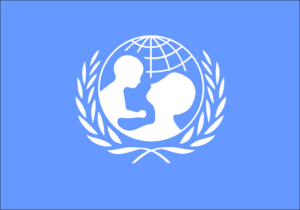
Whenever a pandemic outbreaks, parents are the first to panic owing to their concern for their kids –one of the weakest sections of the society. However, panicking is not an option we can afford at this point of time. Understanding this new virus and responding on the guidelines of experts and health organizations is.
What is ‘novel’ coronavirus?
As per the UNICEF report, Coronavirus disease (COVID-19): What parents should know | UNICEF, published on March 4, 2020, “A novel coronavirus (CoV) is a new strain of coronavirus.The disease caused by the novel coronavirus in Wuhan, China, has been named coronavirus disease2019 (COVID-19) – ‘CO’ stands for corona, ‘VI’ for virus, and ‘D’ for disease. Formerly, this disease was referred to as ‘2019 novelCorona virus’ or ‘2019-nCoV.’”
The report adds that the COVID-19 virus is a new virus linked to the same family of viruses as Severe Acute Respiratory Syndrome (SARS) and some types of common cold viruses.
How does it spread?
According to the report, the COVID-19 spreads through direct contact with respiratory droplets of an infected person (generated through coughing and sneezing), and touching surfaces contaminated with the virus. It may survive on surfaces for several hours, but simple disinfectants can kill it.
Symptoms
Symptoms can include fever, cough and shortness of breath. In more severe cases, infection can cause pneumonia or breathing difficulties. More rarely, the disease can be fatal.Since these symptoms are similar to the influenza or the common cold, which are a lot more common than COVID- 19, that is why testing is required to confirm if someone has COVID-19.
Does COVID-19 affect children?
Since this is a new virus UNICEF is yet to know about how it affects children or pregnant women. The report adds, “We know it is possible for people of any age to be infected with the virus, but so far there have been relatively few cases of COVID-19 reported among children. The virus is fatal in rare cases, so far mainly among older people with pre existing medical conditions.”
What should I do if my child has symptoms of COVID-19?
It is strongly recommended to seek medical attention, but rememberkeeping in view that it is a flu season in Kashmir (poashteer) and symptoms of COVID-19 such as cough or fever can be similar to those of the flu, or of the common cold – which are a lot more frequent during this time of the year. If possible, one should avoid visiting the overcrowded hospitals.
The report suggests to follow good hand and respiratory hygiene practices like regular hand-washing, and to keep your child up todate with so that your child is protected against other disease causing viruses and bacteria causing diseases.
As with other respiratory infections like the flu, seek care early. if you or your child are having symptoms, of flue and try to avoid going to public places (workplace, schools, public transport), to prevent spread to others.
UNICEF guidelines: the best way to wash hands properly?

Step 1: Wet hands with running water
Step 2: Apply enough soap to cover wet hands.
Step 3: Scrub all surfaces of the hands – including back of hands, between fingers and under nails – for at least 20 seconds.
Step 4: Rinse thoroughly with running water.
Step 5: Dry hands with a clean cloth or single-use towel.
Wash your hands often, especially before eating; after blowing your nose, coughing, or sneezing; and going to the bathroom.
If soap and water are not readily available, use an alcohol-based hand sanitizer with at least 60% alcohol. Always wash hands with soap and water, if hands are visibly dirty.
Can pregnant women pass coronavirus to unborn children?
At this time, there is not enough evidence to determine whether the virus is transmitted from a mother to her baby during pregnancy or the potential impact this may have on the baby. This is currently being investigated. Pregnant women should continue to follow appropriate precautions to protect themselves from exposure to the virus, and seek medical care early, if experiencing symptoms, such as fever, cough or difficulty in breathing.
Is it safe for a mother to breastfeed if she is infected with coronavirus?
The report explains, “All mothers in affected and at-risk areas who have symptoms of fever, cough or difficulty breathing, should seek medical care early, and follow instructions from a health care provider.
“Considering the benefits of breastfeeding and the insignificant role of breastmilk in the transmission of other respiratory viruses, the mother can continue breastfeeding, while applying all the necessary precautions.
“For symptomatic mothers well enough to breastfeed, this includes wearing a mask when near a child (including during feeding), washing hands before and after contact with the child (including feeding), and cleaning/disinfecting contaminated surfaces – as should be done in all cases where anyone with confirmed or suspected COVID-19 interacts with others, including children.
“If a mother is too ill, she should be encouraged to express milk and give it to the child via a clean cup or spoon – all while following the same infection prevention methods.”

